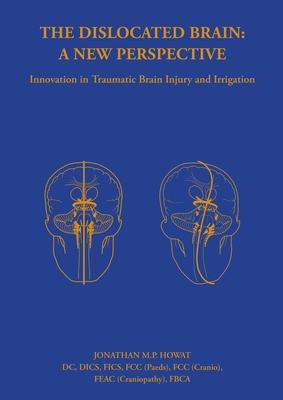The Dislocated Brain presents the innovative protocols of cranio fascial dynamics (CFD). CFD addresses traumatic brain injury and physically attempts to reverse traumatic distortion and the subsequent failure of brain drainage, thereby reinstating normal physiological function. CFD deals with the 'central brain core components' that make up the intricate neurological pathways that service all aspects of brain function. It includes: the understanding of early (from day 16 to day 23) embryological development of the 'primitive streak' (brain and spinal cord); the development of 'mesenchyme', which is the future fascial covering that encapsulates every part and component of the body; the ventricular system (producing cerebrospinal fluid), supported by the retrieving and processing components as listed above. CFD shows the hierarchical importance of these structures in human development. These areas are fundamental to normal brain function, namely, the retrieval, processing and dissemination of neurological information. Traumatic brain injury torques the spinal cord and the brainstem (the 'central brain core component'), and therefore disturbs the homeostasis of normal retrieval, processing and distribution of neurological information through the now distorted and corrupt neurological pathway system. This is the first primary deficit to neurological imbalance, which I call 'the dislocated brain'. The effect of torque on the neurological pathways is not unlike the buildup of scale in water pipes, gradually depositing 'fur' and reducing the flow of water. Similarly, in the brain this torque will inhibit the normal retrieval, processing and dissemination of neurological information. The purpose of this book is to give the reader the physiology and the understanding of the reinstatement of the 'central brain core component' by the removal of the central brain core component torque, which is the deepseated ultimate 'subluxation'. The body and brain are now in a position to accept the numerous techniques that aid in the recovery of the neurological deficits, visceral changes and extremity distortions with far more effective outcomes.

The Dislocated Brain presents the innovative protocols of cranio fascial dynamics (CFD). CFD addresses traumatic brain injury and physically attempts to reverse traumatic distortion and the subsequent failure of brain drainage, thereby reinstating normal physiological function. CFD deals with the 'central brain core components' that make up the intricate neurological pathways that service all aspects of brain function. It includes: the understanding of early (from day 16 to day 23) embryological development of the 'primitive streak' (brain and spinal cord); the development of 'mesenchyme', which is the future fascial covering that encapsulates every part and component of the body; the ventricular system (producing cerebrospinal fluid), supported by the retrieving and processing components as listed above. CFD shows the hierarchical importance of these structures in human development. These areas are fundamental to normal brain function, namely, the retrieval, processing and dissemination of neurological information. Traumatic brain injury torques the spinal cord and the brainstem (the 'central brain core component'), and therefore disturbs the homeostasis of normal retrieval, processing and distribution of neurological information through the now distorted and corrupt neurological pathway system. This is the first primary deficit to neurological imbalance, which I call 'the dislocated brain'. The effect of torque on the neurological pathways is not unlike the buildup of scale in water pipes, gradually depositing 'fur' and reducing the flow of water. Similarly, in the brain this torque will inhibit the normal retrieval, processing and dissemination of neurological information. The purpose of this book is to give the reader the physiology and the understanding of the reinstatement of the 'central brain core component' by the removal of the central brain core component torque, which is the deepseated ultimate 'subluxation'. The body and brain are now in a position to accept the numerous techniques that aid in the recovery of the neurological deficits, visceral changes and extremity distortions with far more effective outcomes.